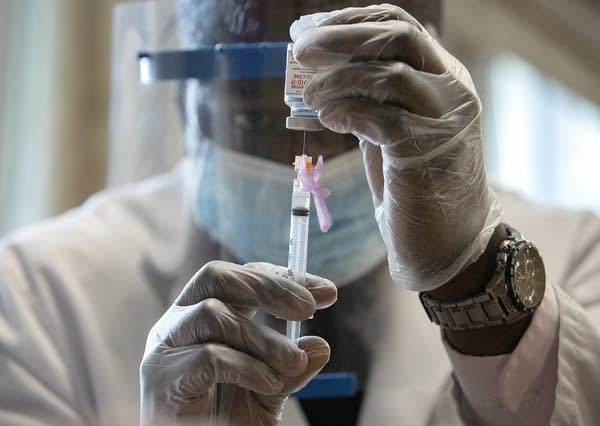Should I get a COVID-19 vaccine if I've had the coronavirus?

Go Deeper.
Create an account or log in to save stories.
Like this?
Thanks for liking this story! We have added it to a list of your favorite stories.
Updated: May 10, 9:57 a.m. | Posted: Jan. 12, 6:34 a.m.
Should you get a COVID-19 vaccine if you’ve had the coronavirus?
Yes. Regardless of previous infection, the U.S. Centers for Disease Control and Prevention says people should plan on getting vaccinated.
"It's a pretty straightforward question," said Johns Hopkins infectious disease specialist Dr. Amesh Adalja. "Yes, you need to get vaccinated."
After someone recovers, their immune system should keep them from getting sick again right away.
Turn Up Your Support
MPR News helps you turn down the noise and build shared understanding. Turn up your support for this public resource and keep trusted journalism accessible to all.
"Your immune system is able to identify the virus, and protect itself," said Dr. Saskia Popescu, an infectious disease expert at George Mason University.
Scientists still don't know exactly how long this immunity lasts or how strong it is, though some research suggests the protection could last for several months.
It's impossible to know how long a person might be immune, said Dr. Prathit Kulkarni, an infectious disease expert at Baylor College of Medicine. "There's no way to calculate that."
Vaccines, by contrast, are designed to bring about a more consistent and optimal immune response. And they should boost whatever preexisting immunity a person might have from an infection, experts say.
"You actually make more antibody after the vaccination than you do after the actual infection," said Dr. William Schaffner, a professor in the Division of Infectious Diseases at Vanderbilt University Medical Center.
That increase provides two benefits, he said on MPR News with Kerri Miller.
"It provides you a better 'cushion' ... of protection against variant strains that may be out there," which could lead to people getting reinfected, he said.
And, "the higher your antibody level, the longer your protection is likely to be."


